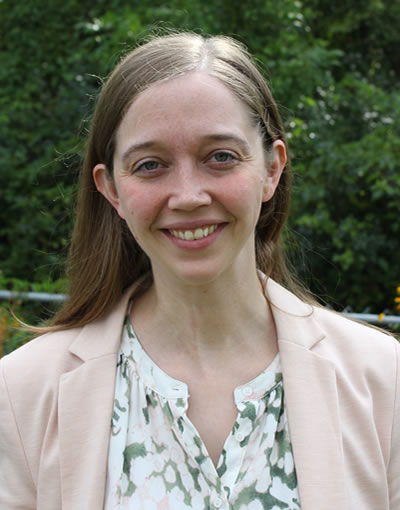COE Communication Sciences and Disorders’ 60th Anniversary April Highlight: Sara Acton


Sara Acton
By Rachel Renou, COE Grad Assistant | Published April 29, 2021
Sara Acton’s childhood language stimulation research is both functional and culturally responsive to many Indigenous families. Empowered by her passion for disability advocacy developed as a Brehm Scholar with the Eastern Michigan College of Education, she was committed to provide a practical resource to a group of indigenous nations with the help of Elders and other Indigenous caregivers from the region.
Originally from Calgary, Alberta, Canada, Acton started working in Indigenous communities while pursuing both a B.A. Honors (2009) and M.A. (2012) in Linguistics. Acton’s graduate work on first language acquisition, the study of how children typically learn their first language, brought her to one of the nations in the region several times, both for field work and to present project results in local news and radio media. One evening, Acton presented her results at the community’s local public library.
It was during this time that Acton learned how to further make a difference within the community that would spark her desire to learn more about speech pathology.
“One evening… a group of teachers asked me questions about speech pathology and how to tell if a student might need therapy. I couldn't answer any of their questions, and I realized that this was a local area of need. Their questions inspired me to volunteer with speech therapists after completing my linguistics master's degree and ultimately to pursue an MA in speech pathology,” (Acton).
Acton chose the EMU COE because she was confident the Communication Sciences and Disorders program would provide her with invaluable support and opportunities to pursue new research that would help her address the community’s stated needs. As a Brehm Scholar, Acton’s beliefs were reaffirmed that furthering her education would help her make a difference.
“Through the Brehm Scholarship program, the activists and advocates that I met in the program, and the thoughtful guidance of leaders and previous students, I came to more fully understand all that needs to be enfolded into the goal of equity, inclusion, and social justice. I came to the Brehm program with a passion for justice for Indigenous communities and a desire to learn how to direct that passion toward serving people in culturally responsive ways. The Brehm program experience provided me with rich opportunities to do just that,” (Acton).
Throughout her research with Indigenous communities, Acton wanted to be as respectful as possible. “Given the long history of exploitative research in Indigenous communities, I knew that I had to be thoughtful about setting up my project,” (Acton). Knowing she might make mistakes, she worked with a regionally-based steering committee and conducted interviews with the community's leaders to develop relevant and helpful research grounded in the culture’s priorities–key for culturally responsive research practices.
Even today, Acton is continuing to focus on how she can be her best for her local communities. She quotes Maya Angelou “Do the best you can until you know better. Then when you know better, do better” and says she is thankful the Brehm Scholarship inspired her to keep learning how to be better for others.
Today, she applies that same theory within her current position as a SLP with Washtenaw Intermediate School District working in young adult special education programs. Acton aims to help her students learn about what they can accomplish and help them achieve those goals just as she did within the EMU COE.
“I am still improving my skills in empowering my students to direct their own IEP goals and have a say in what they do and what they practice. It brings me joy to get to know such smart young adults throughout all of our programs and to work with them to find ways for them to express their particular genius,” (Acton).
About The College of Education at Eastern Michigan University
Founded in 1849, The College of Education (COE) at Eastern Michigan University (EMU) continues to be one of the largest producers of educational personnel in the nation. The COE includes a comprehensive variety of programs at the bachelor, master and doctoral program level. Non-degree and certifications are also offered through the COE as well. The COE includes departments for teacher education, special education, and leadership & counseling. All of the professional education programs offered by EMU’s COE are accredited by the Council for the Accreditation of Educator Preparation (CAEP) and are also approved by the Michigan Department of Education (MDE). The graduates the EMU produces are highly desired in the field, due to the strong reputation the COE has earned throughout their many established years. The COE has been recognized for its strong success rate by U.S. News and World Report’s: America’s Best Colleges.

